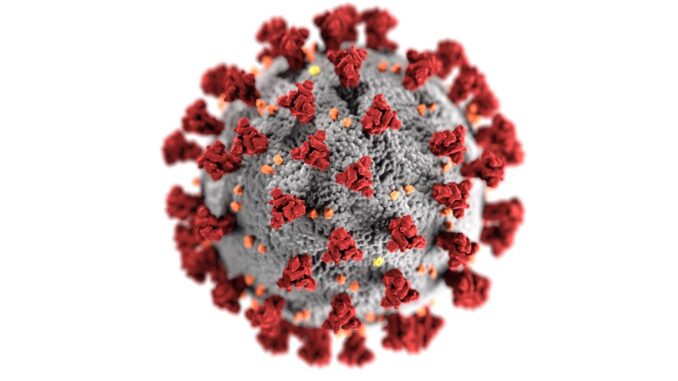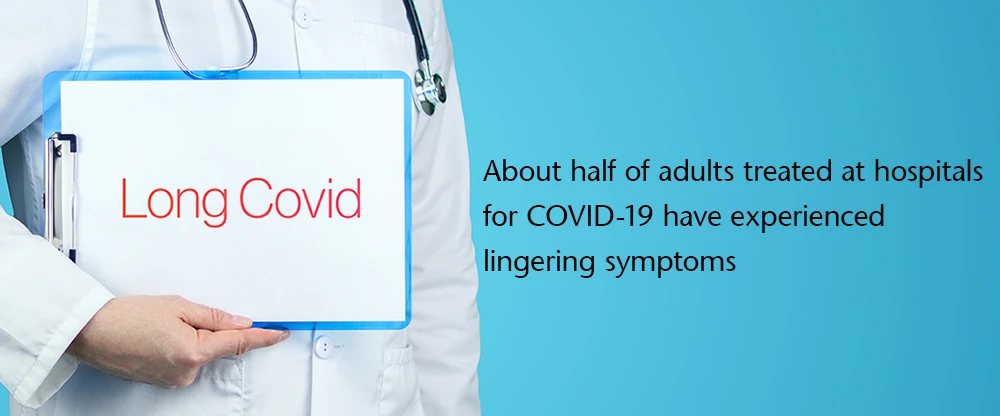
BY National Heart, Lung, and Blood Institute (NHLBI)
|
Many adults experience problems like coughing, chest pain, and fatigue six months after their stay About half of adults treated at hospitals for COVID-19 have experienced lingering symptoms, financial difficulties, or physical limitations months after being discharged, according to a National Institutes of Health-supported study published in JAMA Network Open. After six months, more than 7 in 10 adults surveyed in the study experienced cardiopulmonary problems, such as coughing, rapid or irregular heartbeat, and breathlessness, while about half had fatigue or physical limitations – all symptoms associated with long COVID. Additionally, more than half of the adults said they faced financial challenges. The findings came from the PETAL Network’s Biology and Longitudinal Epidemiology: COVID-19 Observational (BLUE CORAL) study, which is supported by the National Heart, Lung, and Blood Institute (NHLBI), part of NIH. “My clinic patients often want to know how soon they’ll get back to their usual health,” said Andrew J. Admon, M.D., M.P.H., the study’s first author, a pulmonologist at LTC Charles S. Kettles VA Medical Center, and an assistant professor in the departments of internal medicine and epidemiology at the University of Michigan, Ann Arbor. “Based on these data, it seems that many people hospitalized for COVID-19 should expect symptoms to last for up to six months or even longer.” To conduct the analysis, researchers assessed data from the medical records and follow-up surveys of 825 adults who received treatment for COVID at one of 44 medical centers in the United States between August 2020 and July 2021. Patients were surveyed one, three, and six months after leaving the hospital for general or intensive care treatment. The researchers found that six months after being hospitalized:
“These findings will inform programs designed to help adults recover from severe cases of COVID and guide how physicians should check in with patients in the year following hospitalization,” said James P. Kiley, Ph.D., the director of NHLBI’s Division of Lung Diseases. “They may also help shape future clinical research studies.” For a bigger picture, other studies, such as the Household Pulse Survey, have suggested that half of U.S. adults have reported having COVID. International data suggest that about 1 in 13 adults, 6-7%, who have had symptomatic COVID infections still experienced symptoms months later. Based on research published in JAMA, symptoms lasted for about four months for those who recovered outside of the hospital compared to nine months for those who received hospital care. To learn more about BLUE CORAL, visit https://petalnet.org/studies/public/bluecoral. To learn about NIH research activities to prevent and treat long COVID, visit Researching COVID to Enhance Recovery (RECOVER) or ClinicalTrials.gov. Study: Admon AJ, Iwashyna TJ, Kamphuis LA, et al. Assessment of symptom, disability, and financial trajectories in patients hospitalized for COVID-19 at 6 months. JAMA Network Open. 2023; doi: 10.1001/jamanetworkopen.2022.55795. |
|
 |
|
|
About the National Heart, Lung, and Blood Institute (NHLBI): NHLBI is the global leader in conducting and supporting research in heart, lung, and blood diseases and sleep disorders that advances scientific knowledge, improves public health, and saves lives. For more information, visit www.nhlbi.nih.gov.
About the National Institutes of Health (NIH): NIH, the nation’s medical research agency, includes 27 Institutes and Centers and is a component of the U.S. Department of Health and Human Services. NIH is the primary federal agency conducting and supporting basic, clinical, and translational medical research, and is investigating the causes, treatments, and cures for both common and rare diseases. For more information about NIH and its programs, visit www.nih.gov.
|
|
| NI |







